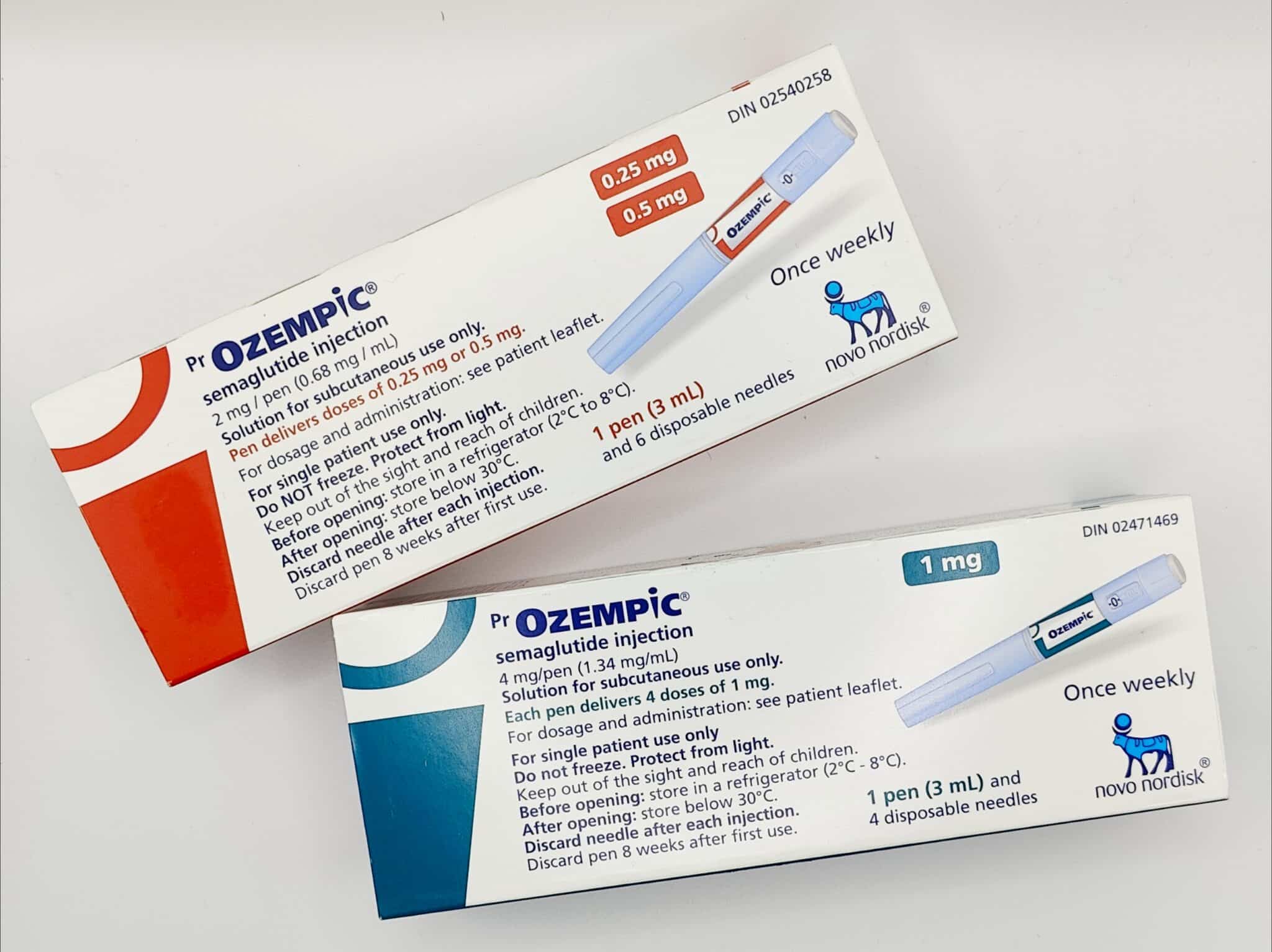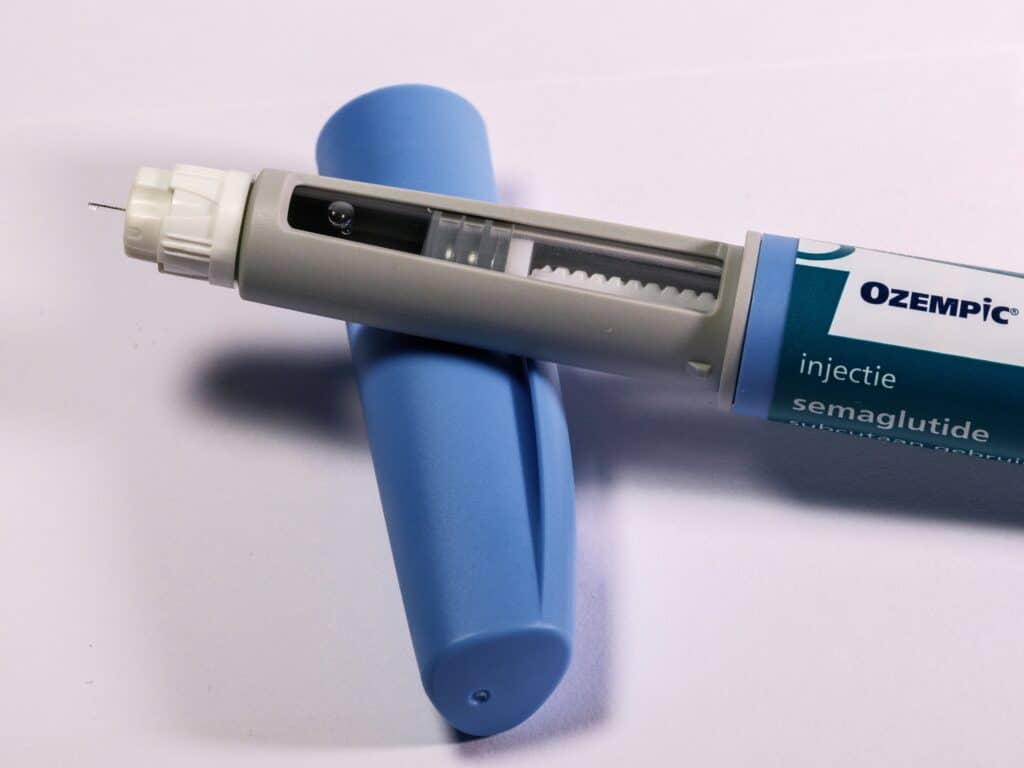Ozempic and Addiction Treatment: A New Frontier in Medicine
Ozempic and Addiction Treatment: A New Frontier in Medicine
- Jason K
Ozempic (semaglutide) has gained widespread recognition as an effective treatment for type 2 diabetes and weight loss. But recent studies suggest it may hold promise in treating addiction, including alcohol use disorder. Researchers are now investigating how Ozempic affects the reward system in the human brain, potentially opening the door to new therapies for addiction-related conditions.
In this post, we’ll explore how Ozempic works, its potential role in addiction treatment, and what this could mean for patients in the future.
Understanding How Ozempic Works
Ozempic is part of a class of medications called GLP-1 receptor agonists. These drugs mimic the action of the natural hormone glucagon-like peptide-1 (GLP-1), which helps regulate blood sugar and appetite. GLP-1 receptors are found not only in the pancreas and digestive system but also in the brain, where they influence the reward pathways.
Key Functions of Ozempic:
1. Blood Sugar Control: Stimulates insulin production and reduces glucose release from the liver.
2. Appetite Regulation: Slows gastric emptying and increases feelings of fullness, aiding in weight loss.
3. Impact on the Brain: Influences the brain’s reward system, potentially altering behaviors associated with cravings and addiction.
The Role of the Brain’s Reward System in Addiction
The reward system in the brain plays a central role in addiction. This complex network of neural pathways is activated when we engage in pleasurable activities, such as eating, drinking, or socializing. Dopamine, a key neurotransmitter, reinforces these behaviors by creating feelings of enjoyment and satisfaction.
In people with addiction, this system becomes dysregulated. Substances like alcohol hijack the reward pathways, causing the brain to crave these substances even when they’re harmful. This creates a cycle of dependence that can be difficult to break.
How Ozempic May Help Treat Addiction
Recent studies suggest that GLP-1 receptor agonists like Ozempic could impact the brain’s reward system in ways that reduce addictive behaviors. Here’s how:
1. Reducing Dopamine Response
- GLP-1 receptors in the brain modulate dopamine release in response to rewarding stimuli.
- By reducing the dopamine surge associated with alcohol consumption, Ozempic may make drinking less pleasurable, curbing cravings and reducing consumption.
2. Curbing Cravings
- Ozempic’s appetite-suppressing effects may extend to cravings for substances like alcohol.
- Patients have reported reduced desire for food, and some studies suggest a similar effect on alcohol cravings.
3. Promoting Behavioral Change
- By altering the brain’s reward pathways, Ozempic may make it easier for individuals to adopt healthier behaviors and resist the urge to engage in harmful habits.
Current Research on Ozempic and Addiction
Preliminary studies and animal models have shown promising results for GLP-1 receptor agonists in addiction treatment. Key areas of research include:
1. Alcohol Use Disorder
- Studies have found that GLP-1 receptor agonists reduce alcohol consumption in rodents.
- Human trials are underway to evaluate Ozempic’s effectiveness in reducing alcohol cravings and heavy drinking episodes.
2. Other Addictions
- Researchers are exploring the potential of Ozempic in treating addictions to nicotine, opioids, and even high-sugar foods, which similarly engage the brain’s reward system.
- The drug’s ability to regulate impulsive behavior and cravings makes it a candidate for broader addiction therapies.
3. Long-Term Impact on the Reward System
- Scientists are investigating how long-term use of Ozempic affects the brain and whether these changes can lead to sustained recovery from addiction.
What This Means for Patients
If proven effective, Ozempic could revolutionize addiction treatment by providing a medication that directly targets the reward system. Unlike traditional approaches that rely heavily on behavioral therapy and support groups, Ozempic could offer a biological solution to help patients manage cravings and reduce the risk of relapse.
Who Might Benefit?
- Individuals with alcohol use disorder who struggle with cravings or have not responded to traditional treatments.
- Patients with coexisting conditions like obesity or type 2 diabetes, where Ozempic could address multiple health concerns simultaneously.
Potential Challenges
- As with any medication, Ozempic has side effects, including nausea, diarrhea, and potential risks for certain individuals.
- More research is needed to confirm its safety and effectiveness for addiction treatment.
Affordable Access to Ozempic
Ozempic’s potential in addiction treatment highlights its versatility as a medication. However, its cost can be a barrier for many patients. U.S. patients can save significantly by ordering Ozempic through trusted Canadian prescription referral services like Over the Border Meds. These services connect patients with licensed Canadian pharmacies, offering high-quality medications at lower prices.
Conclusion
Ozempic’s impact on the brain’s reward system represents a promising development in the treatment of addiction, particularly alcohol use disorder. By modulating dopamine release and curbing cravings, Ozempic could provide a new pathway for managing addiction and improving the lives of countless individuals.
As research continues, the hope is that Ozempic and other GLP-1 receptor agonists will expand their role beyond diabetes and weight loss, offering solutions to some of the most challenging conditions in healthcare today. If you’re considering Ozempic for diabetes, weight loss, or emerging treatments, visit Over the Border Meds to learn more about affordable options.


